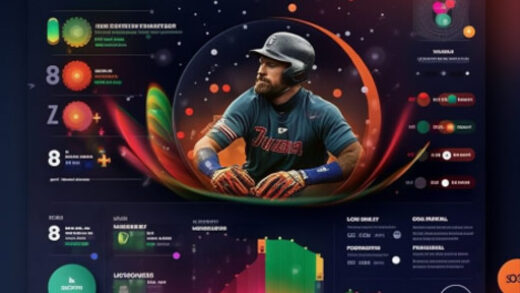IBM’s Watson project was initiated as a successor to DeepBlue, the AI program and computer that triumphed over the world chess champion, Gary Kasparov. DeepBlue’s success in the game of chess showcased a computer’s ability to defeat a human in a game with explicit rules and finite, visible solutions.
However, the real world is much more intricate and unpredictable, with unstructured data, ambiguous problems, and probabilistic solutions. In order to equip AI to tackle real-world challenges, IBM tasked its team of computer and data scientists to create a program capable of beating human participants on Jeopardy!, a quiz show that required answers to natural language questions across various domains of knowledge.
Thus, Watson was born. In 2011, Watson triumphed over this challenge, marking a significant milestone in the field of artificial intelligence. Since then, IBM has implemented Watson extensively across various industries and use cases, making it the go-to solution for effective analytics processing.
Let’s understand the nature and applications of IBM Watson.
Article structure:
What is IBM Watson
IBM Watson is a data analytics processor that utilizes natural language processing – a technology that dissects speech for meaning and syntax and transforms it into practical answers.
The namesake of IBM’s first CEO, Thomas J. Watson, IBM Watson’s technology was initially created in a research project known as DeepQA. The objective of the project was to develop a language-responsive system that could decode human-language queries, analyze vast amounts of data, and deliver answers that would take human researchers days, weeks, or even months to derive.
In 2011, IBM Watson underwent its first public test in the Jeopardy! competition against the show’s champions Ken Jennings and Brad Rutter, emerging as the winner.
Two years later, IBM introduced the first commercial application of Watson, which was designed for Sloan Kettering Cancer Center and WellPoint Insurance. The application was used for cost management analysis in the treatment of lung cancer.
Today, IBM Watson is used in various industry sectors that require specialized information, including veterinary science, environmental and geotechnical engineering, education, government, food and beverage, legal, and music and entertainment.
Why does IBM Watson matter
IBM Watson technology has the potential to benefit a wide range of industries, institutions, and public sector entities as it can be tailored to their unique knowledge bases. In companies, Watson can be utilized by various roles such as a data architect responsible for big data and analytics, a data scientist creating algorithms and queries, or an end business user like a medical practitioner seeking Watson’s expert analysis of a patient’s condition for a probable diagnosis.
IBM Watson is making an impact in various sectors through its applications. Here are five examples:
- Healthcare: Watson is significantly impacting the medical field, particularly cancer research and patient care. It is deployed in top cancer hospitals such as the Memorial Sloan Kettering Cancer Center, the University of Texas MD Anderson Cancer Center, and the Mayo Clinic, where it helps accelerate DNA analysis for cancer patients and improve their treatments. Additionally, Watson aids physicians in diagnoses through natural language processing, as demonstrated by a dermatology app called schEMA. Watson also assists in reading scans such as X-rays and MRIs to aid in pinpointing ailments. It is also being used in veterinary medicine.
- Finance: Watson’s question-and-answer capabilities are commonly used in the financial sector for financial guidance and risk management. ANZ Global Wealth in Australia uses Watson Engagement Advisor Tool, a natural language processing SaaS tool, to field and monitor customer questions, while DBS bank in Singapore utilizes Watson to provide proper advice and customer experience for its wealth management business.
- Legal ROSS Intelligence Inc. uses Watson to provide users with answers to legal questions in plain English by sifting through a database to return a cited answer with relevant legislation. Singapore’s Inland Revenue Authority also employs Watson to field tax-related questions.
- Retail Watson’s NLP capabilities are helpful for personalization in modern retail experiences. Sellpoints’ Natural Selection app presents products to customers at the most appropriate point in the buying cycle, while WayBlazer’s Discovery Engine uses Watson to analyze data and customize preferences for individual consumers.
- Fantasy Football Edge Up Sports uses Watson APIs and IBM Watson Personality Insights to analyze NFL data and help fantasy football fans make better choices during the season. Watson analyzes news about teams and tweets from individual players to streamline the research process.
IBM Watson is currently being used across various industry verticals, such as healthcare for predictive analytics and condition diagnosis, smart city infrastructure planning, and legal case outcome analysis. The technology runs on IBM Power servers, which can cluster together in groups of tens or hundreds to function like supercomputers. However, the cost of an internal system may be prohibitive for smaller companies or research institutes. Fortunately, IBM offers a cloud-based version of Watson that can be accessed through a subscription or on-demand, making it accessible to small and midsize companies.
Good to know: ChatGPT AI-generated text and code: Real cases of threats to cybersecurity
What are the options for accessing IBM Watson
IBM Watson is available for purchase as an in-house system, which consists of multiple servers clustered together to form a processing unit. However, this option can be quite expensive, typically costing millions of dollars. Alternatively, smaller companies can access Watson through the IBM cloud, which offers a software developer’s cloud powered by Watson. IBM also provides a global healthcare analytics cloud that can be accessed through the cloud.
Watson is adept at understanding the language used in your industry and business. A wealth of information exists in formats that can be difficult for computers to understand, including PDFs, charts, tables, handwritten notes, blog posts, news articles, and tweets. This represents an overwhelming amount of data for a human to read, process, and make sense of. However, through natural language processing (NLP), Watson can bring together and analyze this disparate, unstructured data, enabling you to gain a deeper understanding of its significance and make more informed decisions. Watson is able to comprehend not only human language, but also industry-specific terminology and company-specific jargon.



